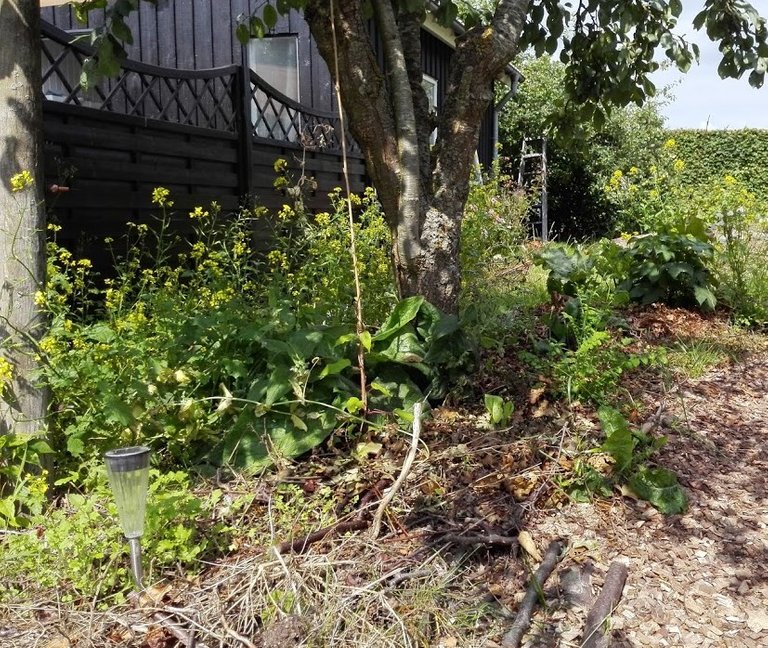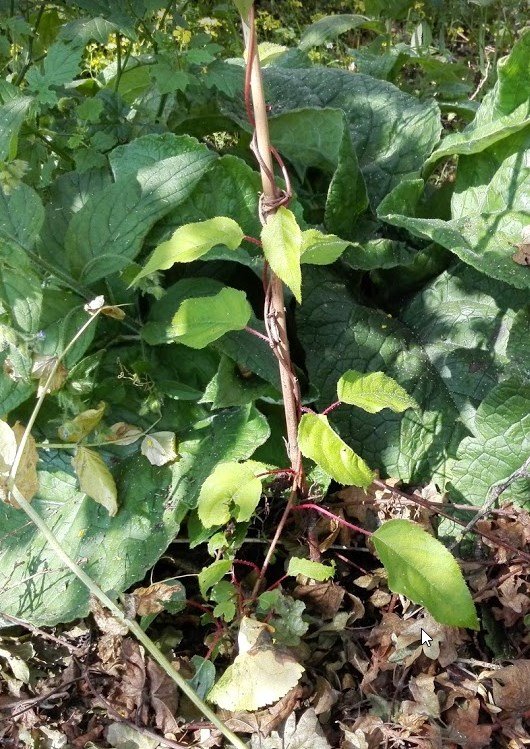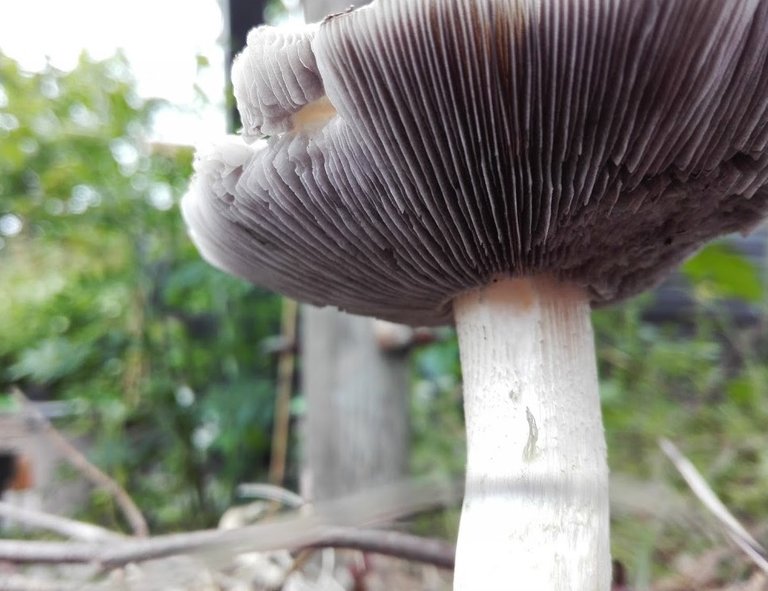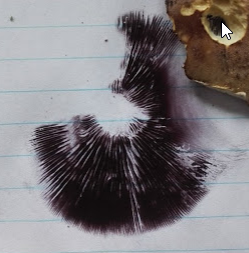I finished off my last post by promising pictures and a description of a different spot in my forest garden and as such, here is the follow-up!

The picture above is showing my wonderful heavily cropping plum tree, and underneath we find the previously mentioned Comfrey(symphytum officinale) and Salad Burnet(sanguisorba minor), as well as American Liquorice(glycyrrhiza lepidota), Kiwis(actinidia arguta), Clover(trifolium repens), a variation of common chicory(cichorium intybus), Strawberries(fragaria x ananassa) as well as Wine Caps(stropharia rugosoannulata), a gourmet mushroom which mycelium I laid in situ last year.
In forest gardening, working in layers is essential, the plum tree being the canopy/tree layer, with a crawling kiwi being yet another vertical layer.

Above: Kiwi(actinidia arguta) crawling towards the plum tree, along a bamboo stick.
Underneath we have the herbaceous layer consisting of comfrey, common chicory, salad burnet and american liquorice. Even further below starts the ground cover layer with strawberries and clovers, spreading in an attempt to occupy as much space as possible, and as the soil is covered in organic matter, with a layer of cardboard underneath planted last year, they're not competing with other plants for the time being - meaning that they may very well end up occupying it all without much of a hassle, especially with selection of perennial plants.
But we're not done with the layering of this particular area yet! As the root layer has yet to be mentioned, here the american liquorice comes into play, a wonderful crop with a wide array of uses, reaching from gourmet to medicine. In this zone lies the wine cap fungi too, and as a matter of fact, it has already fruited twice this year!(Picture of mushroom)

Above: a close-up of the fruiting wine cap(stropharia rugosoannulata)
Below: the spore print after the cap of the mushroom had laid on the paper for six hours.

I immediately made a spore print of said mushroom, for future cultivation and specimen collection.
More layers are present throughout the garden, as I work in a total of 7 layers throughout the garden, but for the sake of introduction I'd rather stick to an isolated area.
The reasons for this kind of plant-diversity below the treeline are many, the plants have been selected for their natural inclinations, form, height, rooting habits, edibility, etc. Chicory is an excellent edible, raw and cooked in terms of leaves, and roots should be cooked as far as I know, other than that the plant is incredibly nutritious due to it's deep tap roots, enabling it to gather minerals where they lay in abundance, and with little competition from other plants. Therefore chicory serves as an edible, mineral accumulator and ground cover, even though it may posses plenty of other uses, depending on the resident. Every single plant has a unique place, in order fill-out every niche and therefore create little room for unwanted plants. This is one of the reasons why a forest garden system can become a very, very low maintenance system, where you essentially turn into a forager throughout the process.
That's it for now Steemit, I may end up adding a bit of information depending on your comments.
Best wishes,
Kasper.
Congratulations @curiosity! You have received a personal award!
Click on the badge to view your Board of Honor.
Do not miss the last post from @steemitboard:
SteemitBoard World Cup Contest - Semi Finals - Day 1
Participate in the SteemitBoard World Cup Contest!
Collect World Cup badges and win free SBD
Support the Gold Sponsors of the contest: @good-karma and @lukestokes
Congratulations @curiosity! You received a personal award!
You can view your badges on your Steem Board and compare to others on the Steem Ranking
Vote for @Steemitboard as a witness to get one more award and increased upvotes!